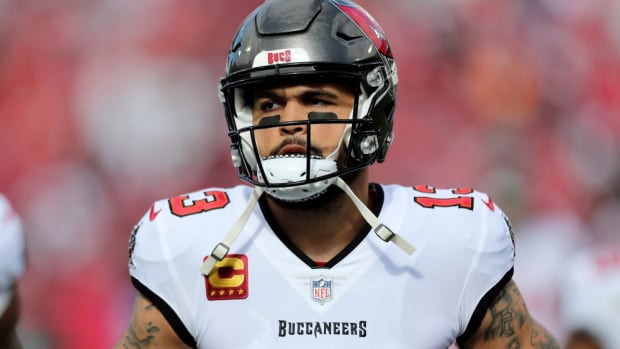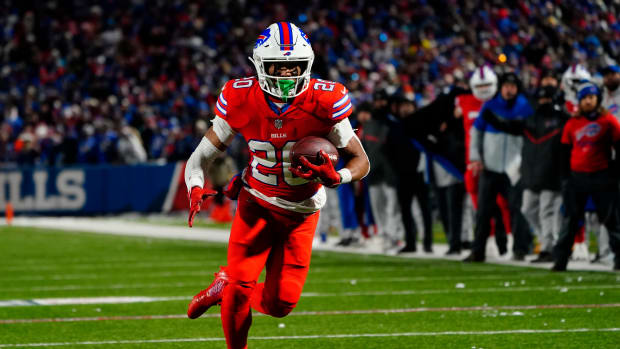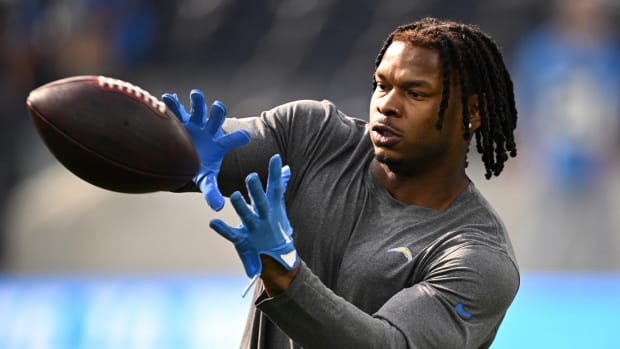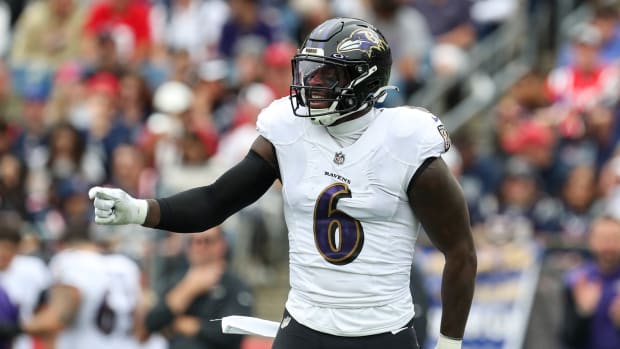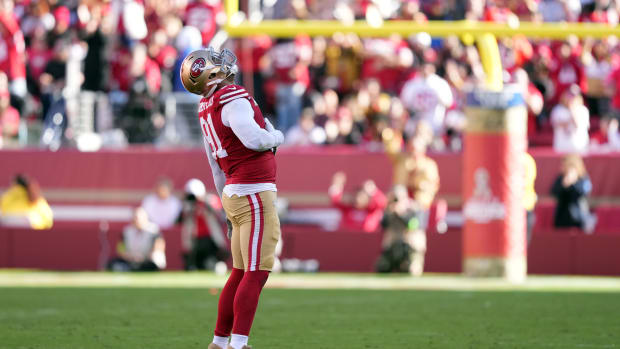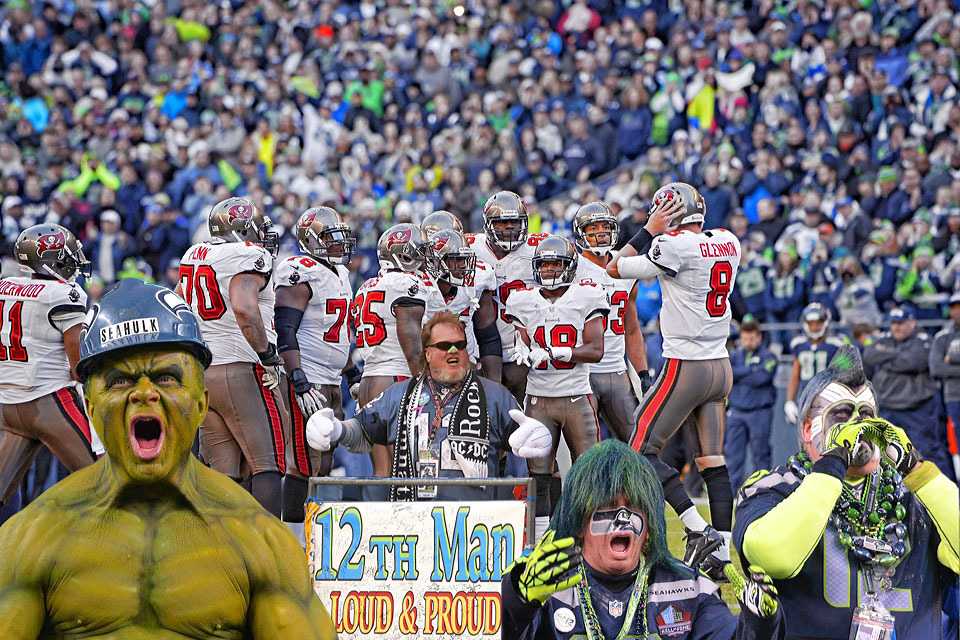
Can You Hear Me Now?
The home-field advantage at CenturyLink Field, where Seattle will host the 49ers in the NFC Championship Game on Sunday, needs little introduction. The Seahawks are 16-1 there over the past two seasons, and the famous 12th Man twice set the Guinness World Record for noise at an outdoor season this season. How, exactly, does an opposing quarterback function in that ruckus? We asked Tampa Bay’s Mike Glennon, the only visiting QB to post a passer rating above 100 at CenturyLink in the past two years, to describe the task of running an offense in one of the NFL’s most hostile environments. His Buccaneers lost on Nov. 3 in overtime, 27-24, but the rookie had the best touchdown-to-interception ratio (2:0) at Seattle of anyone not named Russell Wilson since 2012. Somehow, Glennon managed not to get a headache.
By Mike Glennon
I thought I had played in some loud atmospheres in college at N.C. State, but nothing could have prepared me for our Week 9 game against the Seahawks at CenturyLink Field. In most NFL stadiums when you’re on the road, it gets loud on third down and whenever you’re in the red zone. But in Seattle? It’s loud on every single down, no matter where you are on the field. It feels like there’s someone with a megaphone screaming in your ear. Only it seems more amplified than a megaphone. The deafening noise has a lot to do with the architecture of the stadium, but you have to give those fans a lot of credit.
The emphasis for us going into the game was communicating well in the huddle and at the line of scrimmage. We prepared by using speakers during our practices all week, taking more than 100 reps against the noise of screaming crowds. I don’t know where Coach Schiano found that soundtrack. I was hoarse by the end of each practice, and I even started losing my voice a little on the Friday before the game. Coach told me to drink lemon juice mixed with hot water. It actually helped.
My voice was fine by game day, and it had to be. I was basically just screaming at the top of my lungs in the huddle. I was trying to enunciate, scan the huddle and look my teammates in the eyes, to give them a chance to read my lips if they had to. The huddle just seemed to get tighter than it normally does; everyone was leaning in, trying to get closer to me, and all eyes were on me.
When you visit most other NFL stadiums, it gets loud when you walk up to the line of scrimmage before a play. But as soon as a play ends in Seattle, it gets loud again pretty much right away. I had to keep covering the earholes on my helmet to hear my coach through the headset. Another point of emphasis during our week of preparation was to make sure the coach who called in the play was really clear and enunciated everything. He would give the call to me twice, to make sure I got it right, but he couldn’t speed through the calls.
Yet we had to get the play in quickly, and get in and out of the huddle quickly. That way, if we did have to audible, we’d have enough time left on the play clock. We left audibles on for calls that had them—the noise didn’t change the adjustments we could make—but I had to allow for extra time to execute them. If I wanted to audible in this environment, I had to walk along the line of scrimmage from tackle to tackle, telling my teammates the change. Normally we can communicate a change within two or three seconds, but I gave myself about five or six seconds in Seattle to be on the safe side.
I was trying to enunciate, scan the huddle and look my teammates in the eyes, to give them a chance to read my lips if they had to.
My teammates did a great job communicating outward, or repeating the audible call from the guards to the tackles, and the tackles to the tight ends. We really didn’t have any communication problems the whole game, which was pretty impressive given how loud it was. It’s typical to start any road game using a silent cadence on plays out of the shotgun, but we can often switch out of it later on when the noise isn’t too bad.
Inside the Link
What makes CenturyLink Field so loud? It's all by design. FULL STORY
Against the Seahawks, we had to use the silent count out of the shotgun for the whole game; the linemen couldn’t hear me even from a couple yards back. The silent count actually helped us a few times, because we got them to jump and got a few free plays. On my first touchdown, a 12-yard pass to Tim Wright, I knew that a defender had jumped offside, so I gave our receiver a chance to catch a ball that I might not have thrown if they weren’t offside. I think we got the Seahawks to jump twice, but that was a while ago, so they might have cleaned it up since then.
There was only one drive when it actually was pretty quiet. We had just scored a touchdown to go up 14-0, and a special teams turnover—Seattle fumbled the kickoff—gave us the ball right back on their 31-yard line. I threw a ball down to the 4-yard line, and then a little pop pass thrown by running back Mike James put us up 21-0. I actually heard a few boos after that, and I can’t imagine those fans boo too often. But Seattle went down and scored on the next drive, and that kind of got them back into things.
There wasn’t another stadium this year that compared to Seattle’s raucous environment. We played in the Georgia Dome, Ford Field, the Superdome—none of them come even close. The noise was just overwhelming, and I can imagine it’s going to be even worse with the Super Bowl on the line.


































